News

UMN professor part of team that has received FDA approval for new tinnitus treatment
Posted
A University of Minnesota Twin Cities researcher is part of an international team that has developed a new device that could help millions of people worldwide with tinnitus or “ringing of the ears.” The non-invasive device, called Lenire, is now available in the United States.

College of Science and Engineering graduate programs receive high rankings in U.S. News report
Posted
The University of Minnesota Twin Cities remains one of the top schools in the country for science and engineering, with several CSE graduate programs ranked in the top 25 nationally and all CSE graduate programs landing in the top 25 among public universities.

First-of-its-kind measurement of the Universe’s expansion rate weighs in on a longstanding debate in physics and astronomy
Posted
A University of Minnesota Twin Cities-led team used a first-of-its-kind technique to measure the expansion rate of the Universe, providing insight that could help more accurately determine the Universe’s age and help physicists and astronomers better understand the cosmos.
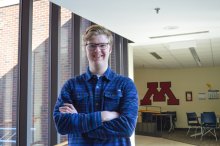
Marching band and medical devices are instrumental in senior Matthew Brown's CSE journey
Posted
In this Q&A, University of Minnesota mechanical engineering senior Matthew Brown discusses his aspirations in medical device engineering, his time in marching band, and how his College of Science and Engineering experiences have given him confidence for his future career.
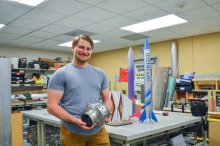
University of Minnesota provides launchpad for CSE senior Nathan Bellefeuille
Posted
Aerospace engineering student Nathan Bellefeuille shares how he cultivated his interest in aircraft design, his college-defining experiences on the University of Minnesota Rocket Team, and his plans post-graduation.
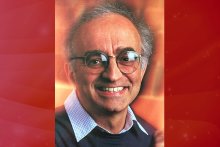
CSE Professor Boris Shklovskii elected to the National Academy of Sciences
Posted
Professor Boris I. Shklovskii has been elected as a member of the prestigious National Academy of Sciences (NAS) for his excellence in original scientific research. Membership in the NAS is one of the highest honors given to a scientist or engineer. Shklovskii is one of only 120 researchers nationwide to be elected to the Academy in 2023.

CSE senior Reina Balley gets into the field—and down in the dirt
Posted
Environmental geosciences senior and former Geoclub president Reina Balley discusses how she found her passion and made valuable connections in the University of Minnesota College of Science and Engineering.
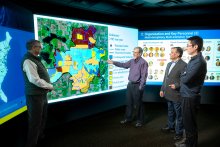
University of Minnesota to lead new $20M AI Institute focusing on climate-smart agriculture and forestry
Posted
The University of Minnesota Twin Cities received a $20 million grant from the National Science Foundation and the USDA National Institute of Food and Agriculture to lead a new research institute that will leverage artificial intelligence to help absorb and store carbon in farms and forests.
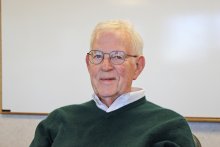
Still giving back 30-plus years later
Posted
Dick Hedger’s ties to Minnesota are strong—and long. They include volunteering at Gopher games when he was a Boy Scout to serving on the CSE Dean’s Advisory Board after earning his U of M second degree in electrical engineering.
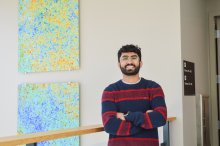
CSE senior Akshay Naik’s undergrad journey include research and mental health advocacy
Posted
Computer engineering senior Akshay Naik discusses the highlights of his University of Minnesota journey, his passion for mental health, and why he strives to be an expert in his field.
